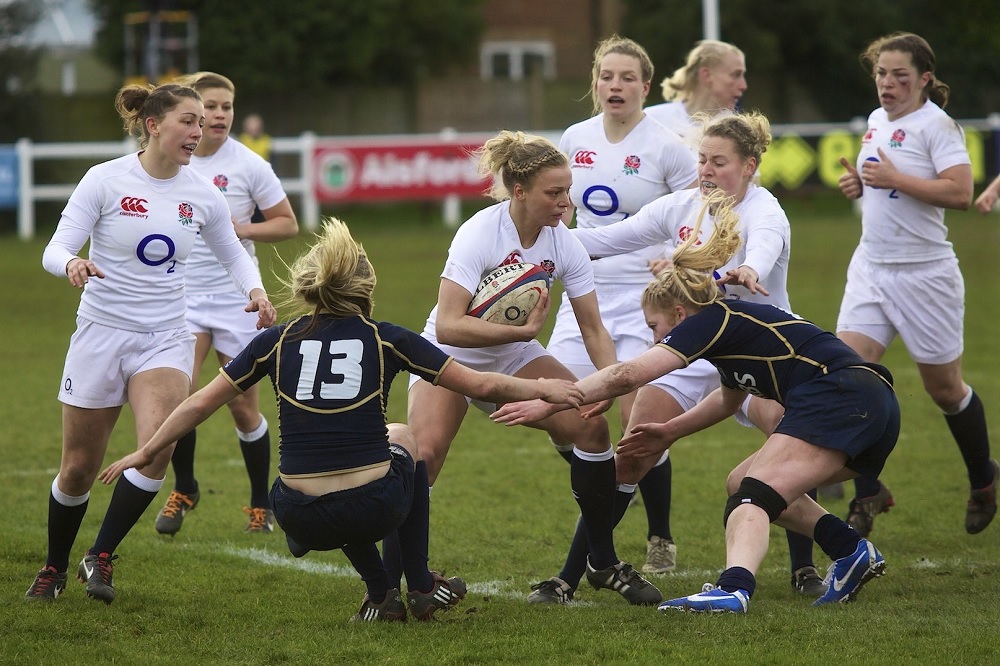Danger women’s Lions team would be dominated by professional England says Ian McGeechan

There is a danger that a women’s Lions team would be dominated by England because they have “by far the most professional set-up”, Ian McGeechan has said.
It was announced this week that former Wales rugby captain Ieuan Evans will chair a 13-person feasibility steering group to explore the possibility of a women’s Lions team.
But former Scotland and Lions international and coach Ian McGeechan said that there was a danger any women Lions’ team would be unbalanced by England’s professional set up.
While England’s women’s game has gone professional, and there are six Scottish players on semi-pro contracts, Wales and Ireland remain completely amateur, he said.
He suggested that unlike the men’s Lions teams which only include players from each nation by convention, the multi-national nature of a women’s Lions team should be set down in the regulations.
“The fact that England are the only professional women’s team in the Home Unions obviously brings up questions surrounding the composition of the squad, and this is one of the most important areas where the women’s Lions should vary from their male counterparts,” he said in the Telegraph.
“I believe that in a squad of, say, 36, just over half should be English with the rest coming from the remaining three countries, so you have at least four from each of Wales, Ireland and Scotland.
“Unlike their male counterparts, every team of women’s Lions would need to contain at least two players from all four nations.
“The argument that these players may not be good enough isn’t persuasive for me. My experience playing and coaching for the Lions is that, if given the opportunity, many players will rise to the challenge, with their skills improving rapidly when exposed to the best players and coaches.”
‘Unprecedented growth’
The main goal of the group chaired by Ieuan Evans will be to ascertain whether a women’s Lions team can be formed in the future, with financial viability, suitable opposition and a viable slot in the playing calendar all hot topics.
The group also includes former Ireland fly-half Niamh Briggs, as well as the IRFU’s director of sevens and women’s rugby Anthony Eddy.
WRU Women’s High-Performance Lead (Acting) Hannah John is also among those on the group.
Ieuan Evans: “Women’s rugby is experiencing unprecedented growth around the world with participation levels continuing to increase every year.
“A Women’s Lions team is a big opportunity for the women’s game, and I am looking forward to working with the Steering Group to assess its viability.”
Lions managing director Ben Calveley said that he believed a women’s Lions team represents a “huge opportunity” for the sport, but acknowledged that there are several key issues that must first be considered.
“We are excited to have put together such a stellar list of individuals who I know will add value to this project,” said Ben Calveley.
“I believe a Women’s Lions team is a huge opportunity, but there are a number of challenges to consider when looking to create a successful women’s set-up.
“Financial viability, suitable opposition and appropriate scheduling in the women’s rugby calendar will all need rigorous analysis, research and careful consideration.
“We are very grateful to be working with a purpose-driven organisation like Royal London on this initiative. Our broader commercial family – including Sky, Vodafone and Canterbury – have also committed to provide their expertise and play an active role in the feasibility analysis.”
Support our Nation today
For the price of a cup of coffee a month you can help us create an independent, not-for-profit, national news service for the people of Wales, by the people of Wales.







The whole “Lions” concept is a nonsense for men and women. The clue is in the name.
What a surprise, yet again the WRFU willing to sell Wales out to the English. Remember, we don’t have a rugby sevens team anymore because of those backstabbing anglo imperialists.
It is the WRU and not WRFU which makes me suspect you have little understanding. This is a B&I Lions idea and they are a separate commercial entity to the WRU. I agree with Geech that it is an unbalanced concept as long as England have a full-time professional squad and the other home nations have amateur part timers, but that is why they are discussing it. WRU have had a gap in management for a year since Ryan Jones left but Nigel Walker is now in post and the women’s game is part of his remit. He has been… Read more »
This would end up the same as the GB womens football team. At the 2012 Olympics, the squad contained, 19 English, 2 Scots, 1 Welsh, and no N Irish. Games played in Cardiff were against inferior opposition, ( Cameroon and NZ ) When it came to the big teams Brazil were played in London and the latter stages in England. Geech can see it coming, you would have to be blind to the way these thing work, not too. Just forget it now.
It’s not fair. Why should the team be full of the best possible players? Obviously it should have quotas from each nation, even if that means having a weaker team overall. Wales should not be forced to take women’s rugby seriously just because the English do.
“It’s not fair. Why should the team be full of the best possible players? ”
To win.
So why aren’t the best French and Italian players involved?
If they’re going to have a brand new traditionless artificial concocted team why not make it a European one rather than just a European Offshore Islands one.